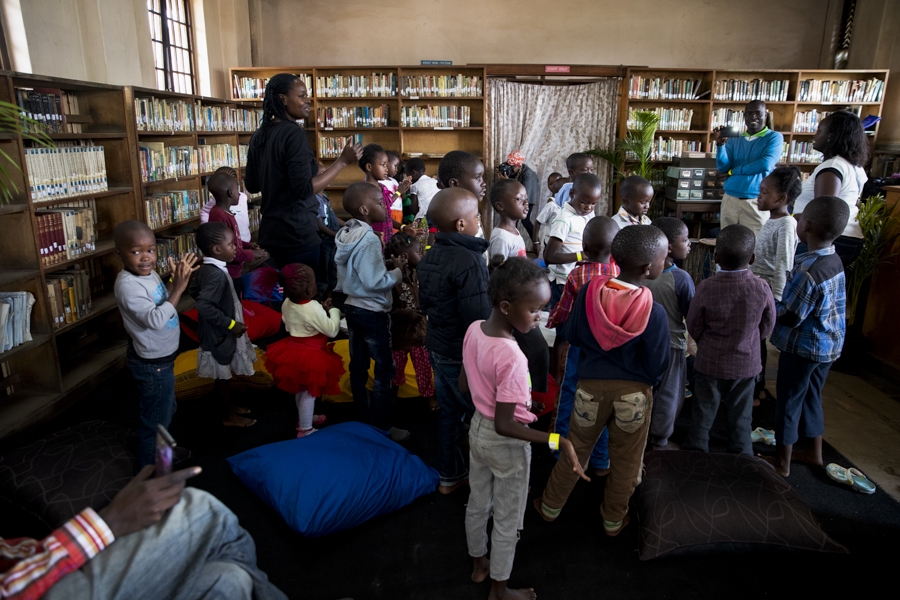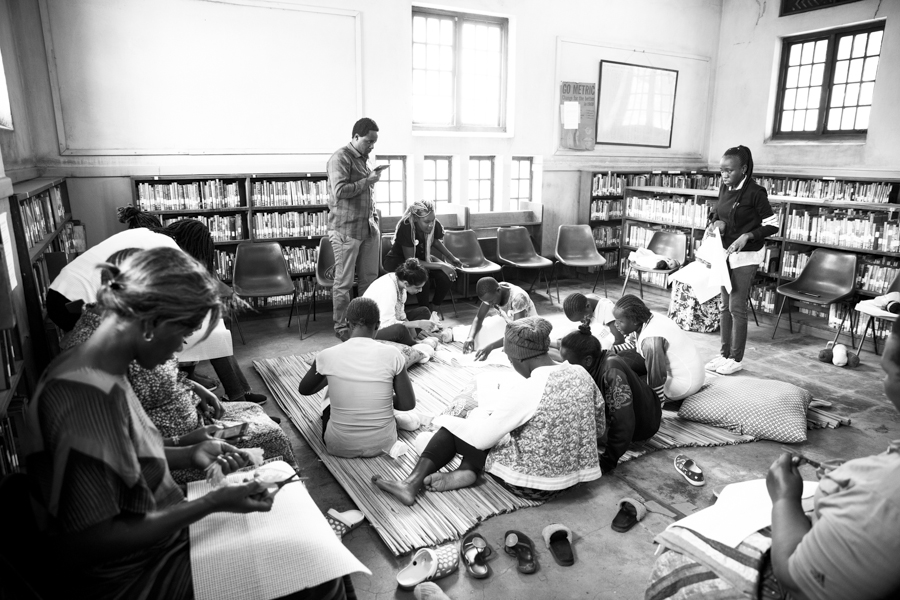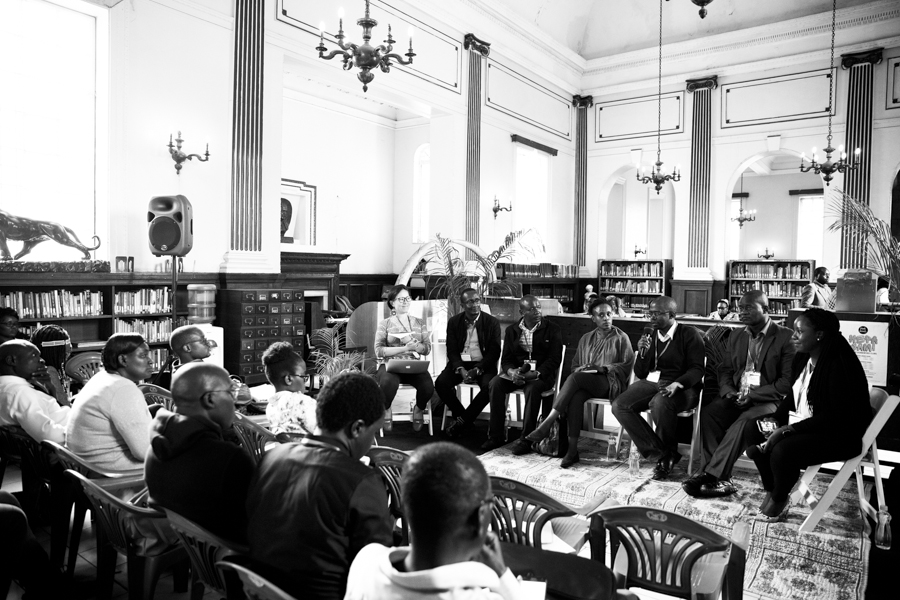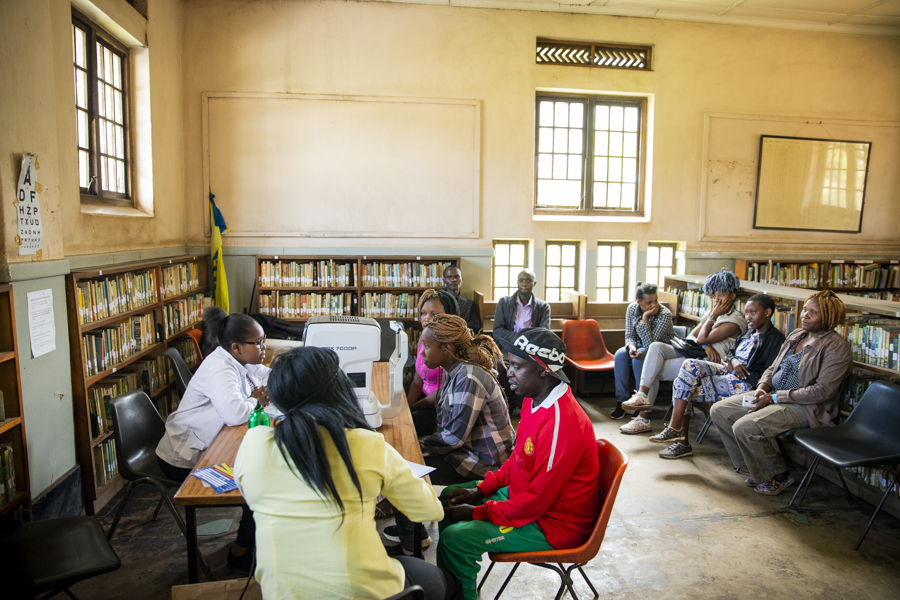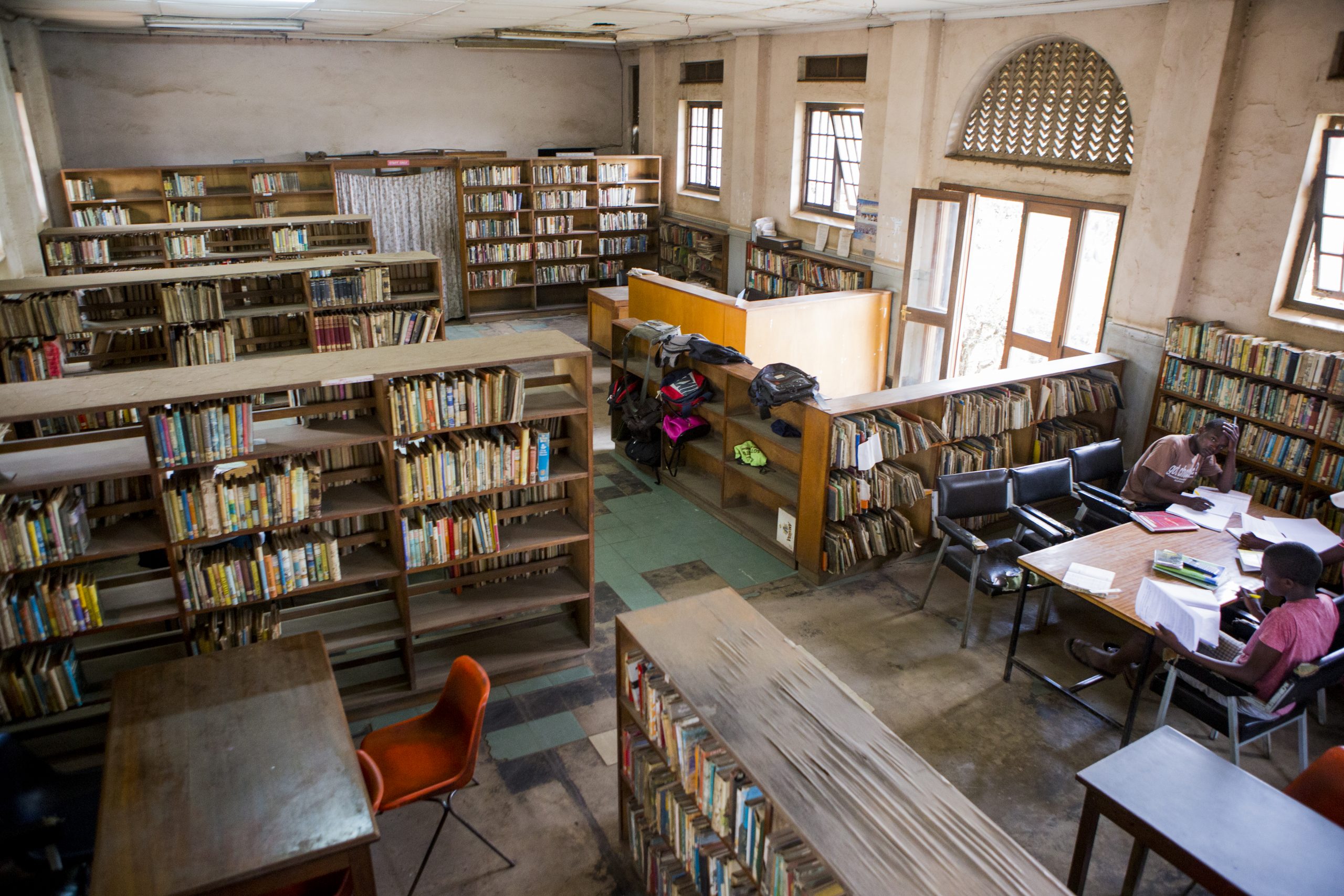
Public libraries become ‘Palaces for the People’ in Nairobi
Public libraries can be much more than repositories of records and knowledge. In Nairobi, SRT grantee Book Bunk is working with local artists and communities to restore and re-imagine the city’s dilapidated colonial libraries. Through its work, modern, open and safe spaces emerge as convening spaces to exchange ideas, and for conversation and learning about the past, present and future of the country.
The McMillan Memorial Library is Nairobi’s oldest. From the time it was opened in 1931 until its handover to Nairobi City Council in 1963, it was accessible only to Europeans (whites). Since then, the library and its collections fell into disrepair and failed to evolve to reflect the realities of the Kenyan people.
As a country with an 81 per cent literacy rate and a thriving literary and cultural scene, its libraries were not meeting the communities’ needs. When writer and entrepreneur Wanjiru Koinange first entered the McMillan Memorial Library, she thought, “Why can’t this grand space become a public space for Nairobians?” She was there with Angela Wachuka, a publisher, to see if the venue would work for a book launch. To step into the building, they said, was to go back in time. Yet they could also envision a future in which the space could be transformed into a vibrant resource for the community.
Soon after, in October 2017, Koinange and Wachuka co-founded Book Bunk to realise this vision. In 2018, they formalised a partnership with the Nairobi County government to revamp the McMillan and other iconic public libraries in the city. They are reimagining these historical structures and collections as modern libraries that help fuel the country’s creative economy and promote civic discourse. They start by listening to Nairobians about their relationships with their libraries and used that data to transform the spaces and how they can be used. Put simply, they aim to decolonize and open up Nairobi’s libraries as public spaces for all of the city’s people.
Book Bunk is coordinating the physical renovation of the libraries in a way that meets communities’ needs, while reflecting their historical legacy. They are modernising libraries and expanding the concept of the library as a safe, inclusive space where people can access a variety of services as well as socialise and network.
Local writers, filmmakers and artists work with Book Bunk to create and deliver programming for the communities. This is one way, according to Koinange, that the public library can become a living space that is part of Kenya’s broader cultural ecology.
“When we formed Book Bunk, we set out to partner with city authorities for the benefit of public libraries,” said Koinange. “The goal was to figure it out quickly and to set up a blueprint for other lovers of public spaces. We hoped they would be inspired to do the same.”
Return to grantee stories

Glimpses of a restoration underway
A video shows the restoration at the Eastlands Library in Makadara. Featuring Book Bunk co-founders Wanjiru Koinange and Angela Wachuka and librarians from the Eastlands Library in Makadara, Nairobi. ©Book Bunk
In 2020, despite the pandemic, Book Book renovated two libraries, acquired over 4,600 books, hosted 20 events and served over 1,700 people through their programmes. They supported 25 local businesses and employed dozens of residents in their renovations. Drawing on the trust they have built with local communities, they delivered books, jigsaws and educational toys to home-schooling families. That same year they were recognized by President Uhuru Kenyatta for refurbishing three public libraries – Makadara, Kaloleni and McMillan.
Book Bunk is continuing to catalogue and digitize collections and is on course to complete the restoration of the Eastlands branch of the McMillan Library in Makadara.
Koinange and Wachuka relate the story behind their work in their engaging podcast, A Palace for the People, whose title references a phrase that Andrew Carnegie used to describe the libraries he built across the world.
Public libraries re-imagined
Book Bunk is transforming Nairobi’s dilapidated colonial libraries into vibrant resources for communities. Photos ©Book Bunk

